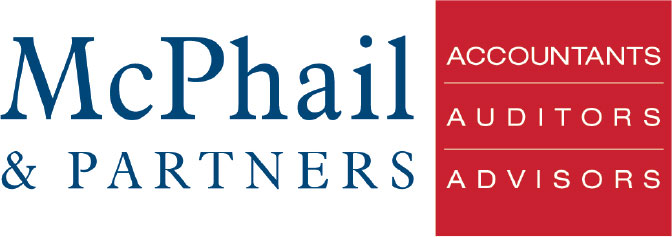The Wheel of Life
The Wheel of Life has been used throughout time for measuring the quality of our lives. Look at the example below and imagine that each piece of the pie represented an area of your own life. Imagine that each line is a spoke in a wheel, with the centre of the wheel representing 0% satisfaction and fulfilment in that area of your life and the outside represents 100% satisfaction and fulfilment with that area of your life.

If this were your Wheel of Life where would you currently be in each area of your life?
Take a few moments to draw a line in each piece of the pie representing where you believe you currently are in that area of your life. When you’ve finished, shade in the areas to get a true sense of the depths of each section and a sense of where to focus your energy.
Here are some suggested headings for each segment, feel free to use these or create your own to represent what is important to you in your life.
• Physical environment
• Business/Career
• Money
• Health
• Family
• Relationships
• Personal growth
• Fun time
If this were a wheel on a car called LIFE, how well would your car run?
How would it run if you were travelling at 25 kilometres per hour? How would it run if you were travelling at 100 kilometres per hour? What if you wanted to be a high achiever? Would the gaps cause you to stay on the road or would you be heading for the ditch?
If you’re like most people, you’re probably experiencing a certain level of discomfort with the quality of your ride! What about if you could find a way to round off your Wheel of Life so that you experienced balance across the areas that matter most to you? Imagine putting your energy, focus and time into the areas that matter most to you…what would that feel like? How would your life look? What would be different?
If there is any part of your current financial situation that you would like to improve, please feel free to con tact our office for a confidential chat.
The Comparison Trap: How to Enjoy (and Not Envy) the Success of Others

First thing in the morning, I check Twitter, only to have it list off for me all the ways I’ve already fallen behind. A colleague has released a new e-book. Two of my design heroes are announcing a collaborative project. One of my old college buddies has posted a video trailer for an upcoming online program, and she looks phenomenal, polished, charismatic, (I’m still in bed, bleary-eyed, and definitely not at my most telegenic.)
Am I really falling behind? Is anybody actually keeping score? Did any of these people post any of the updates with the intent of making me feel bad? Of course not. But if I’m not careful, it’s terribly easy to view my social media streams as a constant reminder of all the stuff I’m not doing, dreams I’m not fulfilling, and rooms I’ve failed to decorate in a Pinterest-worthy manner.
This isn’t a social media problem. It’s a comparison problem.
There isn’t a single thing about Twitter – or any of the other social media platforms I use – that’s designed to make me ask how I’m measuring up. That’s all me – an automatic, internal mechanism. It’s part ego (“But what does this say about me?”), part creative drive (“What more am I capable of?”), and part deep soul yearning (“How can I make an impact, leave a legacy, and matter?”).
And I know it’s not just me. I’ve spent the past year collaborating with leadership coach Tanya Geisler on researching how comparison works, what it costs us, and what it can teach us – and we’ve discovered that it runs rampant among just about every creative, growth-oriented person we know. In our comparison-soaked culture, it’s hard to avoid looking around at what other people are doing with their short time on earth, and slipping (often unconsciously) into “How am I stacking up?” mode. Here’s what we learned:
1. Don’t compare your insides to someone else’s outsides.
The first time I heard this excellent, if hard-to-implement, advice, I was suffering from a terrible case of envy. Some competitor or other had achieved an inspiring degree of success and I was complaining to a mentor about how unachievable it seemed to me. Her warning took me aback: Look, she told me. You have no idea what it took for them to get there. Don’t act like this was unearned, effortless, or pure dumb luck. And for Pete’s sake, don’t go thinking that because you read the press release, you have a single clue about what’s really going on behind the scenes.
2. You have no idea what it took for them to get there. Don’t act like this was unearned, effortless, or pure dumb luck.
She was absolutely right. I knew better, yet in the moment that I’d heard the news, I fell prey to reactive thinking and over-simplification. Because it’s much easier to look at someone “up there” and envy what they’ve got than it is to ask the tougher questions:
o What do they have that I wish I had?
o What do I admire about them? What are they modeling for me?
o What have they done to get where they are today?
o How does this relate to my own values?
When we reflect on these questions, we shift immediately out of comparison mode (that whole comparing-our-insides-to-their-outsides) and turn inwards, to face the heart of the matter: our own desires and fears.
Transform comparison into celebration
Admiration and envy are responses that point us toward what we value most. And when we become aware of what we value, we are much better positioned to create a life that’s richly satisfying.
Admiration and envy are responses that point us toward what we value most.
If you notice yourself admiring people who take creative risks, bring your full attention to the part of you that wants to dare more greatly. If you catch yourself envying the folks in your circles who are at ease with self-promotion, take some time to reflect on how you might share your triumphs in a way that feels totally YOU. Heck, if you’re obsessing over tennis players’ forearms, it could be a sign that you’re ready to revamp your fitness regime. You get the idea.
Use the Success of Others As a Mirror
Comparison can be a dark, stuck place, but only if you let it be. There’s gold to be found in your comparison habit, if you’re willing to look for it. The light we see in others can help us see our own – and appreciate it.
So the next time you catch yourself admiring or envying someone’s success, gifts, or particular brand of radiance – be it in a professional context, a personal one, or simply perusing magazine covers – take a moment to consider:
1. What qualities in them inspire me?
2. Where do I currently embody these qualities?
3. How might my expression of these qualities differ from theirs?
4. What can I learn from my desire to embody these qualities more fully?
Your Twitter feed may never look quite the same.
Article written by Lauren Bacon @laurenbacon
Australia's Top 50 Financial Planners Announced for 2012
We are pleased to inform you that David Graham has once again qualified for a position in the Masterclass for Financial Planning 2012 as determined by “The Australian Financial Review Smart Investor” magazine and placed in the Top 50 financial planners in Australia.
The Masterclass awards were first introduced in 1998 and are carried out by Smart Investor magazine to provide investors and clients with a guide to the top planners in the country. Applicants must not only be licensed to provide financial advice but also be either: a Certified Financial Planner; Certified Practicing Accountant; or a member of the Institute of Chartered Accountants.
Assessment is based on a rigorous 60 minute online exam which is set by experts in the financial services industry. The test gives planners the opportunity to demonstrate their technical expertise in areas like tax, superannuation (including SMSFs), social security, asset allocation, investment strategies, financial maths and estate planning.
More information about the award can be found on pages 23-29 of the February 2012 edition of “Smart Investor” magazine.
You may recall that Anne Graham was a finalist in the AFA Adviser of the Year Award late last year. We are extremely well positioned to continue meeting your financial planning needs in 2012 and beyond and the recognition awarded to us by our peers will give you confidence that you are in capable hands.
Anne Graham wins Victorian FPA CFP® Professional Best Practice Award
We are absolutely delighted to announce that Anne Graham has been awarded the 2013 Victorian FPA CFP® Professional Best Practice Award.
The FPA’s annual Awards recognise Australia’s best financial planners who deliver exceptional qualified and trusted financial advice using the highest standard of ethics, practice standards and professional conduct in the country. CEO of the FPA, Mark Rantall, said that the Best Practice Awards also serve as an important symbol of excellence for consumers seeking qualified financial advice:
“These awards recognise the best of the best. FPA members comply with some of the highest financial planning standards on a global stage. These Award winners have not only complied with the FPA Code, but in so doing have offered a considerable contribution to the profession through community involvement, mentoring and support to their local FPA Chapter.
“Our profession has been through a period of tremendous change in recent years and has made significant strides in advancing the global standing of the profession. These planners have, in spite of any interruption to business, persisted for their clients’ best interests.”said Rantall.
This is a great achievement that demonstrates the high quality advice that Anne provides to our clients.
For more information regarding the award, please visit the FPA website: http://www.fpa.asn.au/default.asp?action=article&ID=23058
What does Female Excellence look like in 2012?
Excellence in advice is more than just providing quality advice, it’s about going over and beyond your call of duty to provide the support and living tools people need – often to survive.
For female excellence in advice, the role doesn’t end as the client walks out the door, it’s an ongoing relationship of advice, and education that makes a difference not just on a client level, but on an industry level.
This award doesn’t just represent great client/adviser achievement, its represents a step forward in diversifying an industry. See three of the contenders for this year’s Female Excellence in Advice Awards via the link below:
http://www.adviservoice.com.au/2012/09/what-does-female-excellence-look-like-in-2012-like-this/
Latest Tax Table
Lorem ipsum dolor sit amet, consectetur adipiscing elit. Donec quis vulputate mauris. Proin nec tortor varius, elementum libero et, sollicitudin purus. Nullam id blandit libero. Fusce eleifend aliquet urna eget bibendum. Donec dignissim sit amet urna id ornare. Maecenas mollis neque vel ligula faucibus, vel pulvinar augue tempor. Maecenas mollis est quis nisl dignissim, sed imperdiet enim porta. Nam hendrerit ligula ut mi pharetra laoreet. Duis nunc felis, aliquam vel semper vitae, pellentesque sit amet nisl.
Tax Rates 2012-13 & 2013-14
| Taxable income | Tax on this income |
| 0 - $18,200 | Nil |
| $18,201 - $37,000 | 19c for each $1 over $18,200 |
| $37,001 - $80,000 | $3,572 plus 32.5c for each $1 over $37,000 |
| $80,001 - $180,000 | $17,547 plus 37c for each $1 over $80,000 |
| $180,001 and over | $54,547 plus 45c for each $1 over $180,000 |
Tax Rates for 2014-15
| Taxable income | Tax on this income |
| 0 - $19,400 | Nil |
| $19,401 - $37,000 | 19c for each $1 over $19,400 |
| $37,001 - $80,000 | $3,344 plus 33c for each $1 over $37,000 |
| $80,001 - $180,000 | $17,534 plus 37c for each $1 over $80,000 |
| $180,001 and over | $54,534 plus 45c for each $1 over $180,000 |






